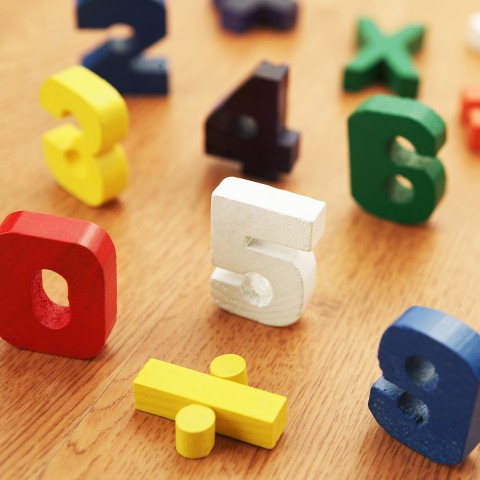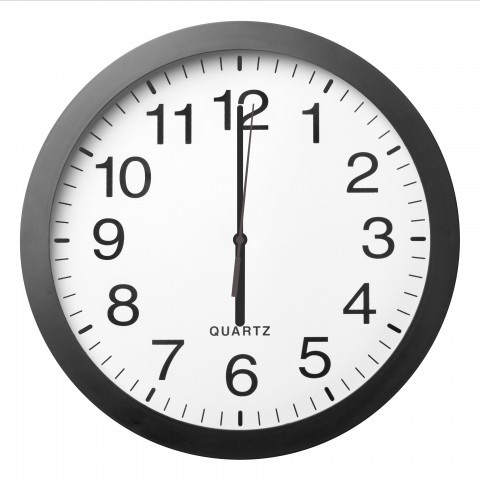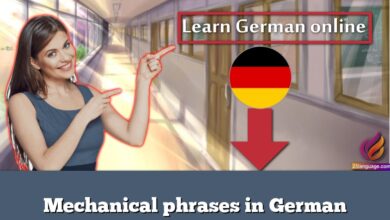200 Basic German Words for Beginners

Basic German Words. If you’ve just started learning German, you might be struggling to get past the beginner stage.
Maybe you feel overwhelmed by the Germanic umlauts on vowels (ä, ö, ü), or maybe that eszett letter (ß). Perhaps it’s the pace of spoken German that’s made you question your decision to start learning.
While there’s definitely truth to those concerns, worry not. There are several short and easy-to-learn words in German that can serve as a springboard while you become familiar with the language.
Memorizing even a few basic German words for beginners will be enough of a stepping stone to help you eventually learn more. This is because many German words are composed of several shorter words that, when combined, have a unique meaning.
Take Kühlschrank, for example. This word is composed of Kühl- which means “cool,” and -schrank which translates to “cupboard.”
Combine the two and you get “cool cupboard,” which is a funny way to describe a refrigerator—the actual meaning of the word Kühlschrank.
Pretty relieving to know this, right?
German isn’t that hard after all. The most difficult part is to summon up the courage to begin.
That’s why we took the time to put together a categorized masterlist of the most essential words in German for beginners.
Without further ado, let’s get right into it…
1. Pronouns
The first set of words you should add to your German vocabulary are pronouns. These are the words we use to refer to people, places, or things without actually using their names:
- Susan ate the chocolate bar. = She ate the chocolate bar.
Here, we’ll be covering three types of pronouns in German: personal, demonstrative, and interrogative.
Personal Pronouns
We’ll start with personal pronouns, given their importance in sentences. These are crucial for almost any sentence, and we recommend you memorize them by heart before you start with any other words.
| English | German |
| I | ich |
| you | du |
| he | er |
| she | sie |
| it | es |
| we | wir |
| you (plural) | ihr |
| they | sie |
| me | mich / mir |
| you | dich / dir |
| him | ihm / ihn |
| her | ihr |
| us | uns |
| them | ihnen |
Demonstrative Pronouns
Demonstrative pronouns are especially critical for indicating which objects or people you’re referring to in your dialogue. These four basic German words are important to master at the beginner stage.
| English | German |
| this | dieses |
| that | das |
| these | diese |
| those | jene |
Interrogative Pronouns / Question Words
Interrogative pronouns, or the “Five Ws,” are the words we use to ask questions.
| English | German |
| who | wer |
| whom | wen / wem |
| whose | wessen |
| what | was |
| which | welche |
In a similar vein, there are a few interrogative adverbs you should learn at this stage as well:
| English | German |
| when | wann |
| where | wo |
| why | warum |
| how | wie |
2. Numbers

The numbers from one to ten in German are rather similar to those in English. Just like with most languages, learning the first ten digits will help you understand and easily learn the rest of the numbers.
| Numbers | English | German |
| 0 | zero | null |
| 1 | one | eins |
| 2 | two | zwei |
| 3 | three | drei |
| 4 | four | vier |
| 5 | five | fünf |
| 6 | six | sechs |
| 7 | seven | sieben |
| 8 | eight | acht |
| 9 | nine | neun |
| 10 | ten | zehn |
3. Nouns
Nouns are one of the most important parts of speech, so you should memorize as many of them in German as you can. When used with verbs, they create a complete sentence—in a pinch, you can even use them alone to get an urgent point across! Below, you’ll find lists of beginner German nouns you should focus on right away.
Time

Time is king, especially in a country like Germany where punctuality is paramount. Learning time-related vocabulary will come in handy in your day-to-day interactions.
| English | German |
| hour | Stunde |
| minute | Minute |
| morning | Morgen |
| afternoon | Nachmittag |
| evening | Abend |
| day | Tag |
| month | Monat |
| year | Jahr |
| Monday | Montag |
| Tuesday | Dienstag |
| Wednesday | Mittwoch |
| Thursday | Donnerstag |
| Friday | Freitag |
| Saturday | Samstag |
| Sunday | Sonntag |
People
These are the words you’d learn in the first lesson of probably any German beginner copybook.
| English | German |
| butcher | Metzger (m.) / Metzgerin (f.) |
| woodman | Holzfäller (m.) / Holzfällerin (f.) |
| police officer | Polizist (m.) / Polizistin (f.) |
| doctor | Arzt (m.) / Ärztin (f.) |
| nurse | Krankenpfleger (m.) / Krankenschwester (f.) |
| firefighter | Feuerwehrmann (m.) / Feuerwehrfrau (f.) |
| teacher | Lehrer (m.) / Lehrerin (f.) |
| father | Vater |
| mother | Mutter |
| sister | Schwester |
| brother | Bruder |
| Mr. | Herr |
| Ms. | Frau |
Places Around Town

If you’re traveling in Germany, whether in one town or around the country, these words will help you get by and even ask for directions.
| English | German |
| hospital | Krankenhaus |
| supermarket | Supermarkt |
| school | Schule |
| downtown | Innenstadt |
| university | Universität |
| city hall | Rathaus |
| main square | Hauptplatz |
| bank | Bank |
| museum | Museum |
| restaurant | Restaurant |
| café | Café |
| police station | Polizeistation |
| train station | Bahnhof |
| bus station | Bushaltestelle |
School/Office Essentials

If you have to study or work in Germany, these words will be helpful when you’re in class or at the office.
| English | German |
| pen | Kugelschreiber |
| notebook | Notizbuch |
| computer | Computer |
| pencil case | Federmappe |
| headphones | Kopfhörer |
| mouse | Maus |
| keyboard | Tastatur |
| wifi | WLAN |
| charger | Ladegerät |
| cable | Kabel |
| backpack | Rucksack |
| desk | Schreibtisch |
| copybook | Heft |
Body Parts
| English | German |
| eye | Auge |
| nose | Nase |
| ear | Ohr |
| face | Gesicht |
| arm | Arm |
| chest | Brust |
| cheek | Wange |
| forehead | Stirn |
| mouth | Mund |
| chin | Kinn |
| armpit | Achselhöhle |
| abdomen | Bauch |
| leg | Bein |
| toe | Zeh |
| finger | Finger |
| ankle | Knöchel |
| hip | Hüfte |
| forearm | Unterarm |
| elbow | Ellbogen |
| wrist | Handgelenk |
Food
Germans are proud of their cuisine and German culture values eating healthy, fresh food rather than buying frozen or ready-to-eat meals. Here’s a list of words for your next grocery shopping spree.
| English | German |
| ٍٍvegetables | Gemüse |
| fruit | Obst |
| meat | Fleisch |
| milk | Milch |
| egg | Ei |
| coffee | Kaffee |
| yogurt | Joghurt |
| bread | Brot |
| bacon | Speck |
| pie | Kuchen |
| ham | Schinken |
| chicken | Huhn |
| juice | Saft |
| sausage | Wurst |
4. Verbs
As a beginner in German, you’ll greatly benefit from picking up the most commonly used verbs. Learning them together with nouns will give you a headstart when it comes to forming sentences and communicating with others.
Daily Routine Verbs
If you’re into daily journaling, doing that in German will require you to know a set of daily routine-related verbs. Here’s a list to get you started:
| English | German |
| to get up | aufstehen |
| to eat | essen |
| to drink | trinken |
| to go | gehen |
| to work | arbeiten |
| to study | studieren |
| to drive | fahren |
| to ride | reiten |
| to sleep | schlafen |
| to wake up | aufwachen |
| to hang | hängen |
| to do laundry | Wäsche machen |
| to nap | ein Nickerchen machen |
| to work out | trainieren |
| to go out | ausgehen |
| to prepare | vorbereiten |
| to cook | kochen |
| to clean | putzen |
| to wash | waschen |
| to tidy up | aufräumen |
| to connect | verbinden |
| to communicate | kommunizieren |
| to wear | tragen |
| to warm up | aufwärmen |
| to grab | greifen |
| to mix | mischen |
| to hold | halten |
| to freeze | einfrieren |
| to change | wechseln |
| to move | bewegen |
Other Common Verbs
| English | German |
| to give | geben |
| to get | bekommen |
| to do | tun |
| to make | machen |
| to let | lassen |
| to ask | fragen |
| to smile | lächeln |
| to find | finden |
| to use | benutzen |
| to take | nehmen |
| to come | kommen |
| to look | schauen |
| to hear | hören |
| to smell | riechen |
| to talk | sprechen |
| to exit | gehen |
| to call | rufen |
| to feel | fühlen |
| to answer | antworten |
| to laugh | lachen |
| to cry | weinen |
| to steal | stehlen |
| to run | rennen |
| to walk | gehen |
| to meet | treffen |
| to create | erschaffen |
| to finish | [responsivevoice voice="Deutsch Female" rate="0.8" buttontext="►"]beenden |
5. Adjectives
Using adjectives in your speech or writing can add a layer of meaning and help you better express yourself. To get you started, here are a few beginner German adjectives in different categories.
Describing Objects
| English | German |
| big | [responsivevoice voice="Deutsch Female" rate="0.8" buttontext="►"]groß |
| small | klein |
| long | lang |
| short | kurz |
| round | rund |
| rectangular | rechteckig |
| smooth | glatt |
| rough | rau |
Describing People
| English | German |
| pretty | hübsch |
| handsome | gutaussehend |
| tall | groß |
| short | klein |
| disgusting | ekelhaft |
| sociable | kontaktfreudig |
| funny | lustig |
| beautiful | schön |
| lovely | lieblich |
| caring | fürsorglich |
| selfless | selbstlos |
| arrogant | arrogant |
| humble | bescheiden |
| courageous | mutig |
| weak | schwach |
| strong | stark |
| quirky | schrullig |
Describing Emotions
Being able to describe our own emotions is critical for well-being and also helps us better understand others. Here’s a list of adjectives for describing emotions:
| English | German |
| happy | glücklich |
| sad | traurig |
| joyful | freudig |
| angry | sauer |
| depressed | depressiv |
| anxious | ängstlich |
| stressed out | gestresst |
| jolly | fröhlich |
Describing Weather
| English | German |
| rainy | regnerisch |
| wet | nass |
| humid | feucht |
| dry | trocken |
| arid | dürr |
| cool | kühl |
| frigid | kalt |
| foggy | neblig |
| windy | windig |
| stormy | stürmisch |
| breezy | luftig |
| windless | windstill |
| calm | ruhig |
6. Conjunctions
| English | German |
| and | und |
| but | aber |
| then | dann |
| because | weil |
| so | so / also |
7. Others
Below is a short list of filler words that Germans use in their conversations. Using these will make you sound like a native and they’ll come in handy in many situations.
| English | German |
| I see (sudden understanding) | ach so |
| sure | klar |
| simply | halt |
| well | tja |
| already | schon |
At last
Armed with these German beginner words, you’ll be able to understand even more of the spoken language than you may have thought (thanks to those nifty word combinations!). How many of these words were new to you? And how many did you know already? We look forward to hearing from you in the comments!
As you read more German, pay attention to how different words are composed. You’ll often notice they can be broken down into parts, which will help you derive their meanings more easily.





























